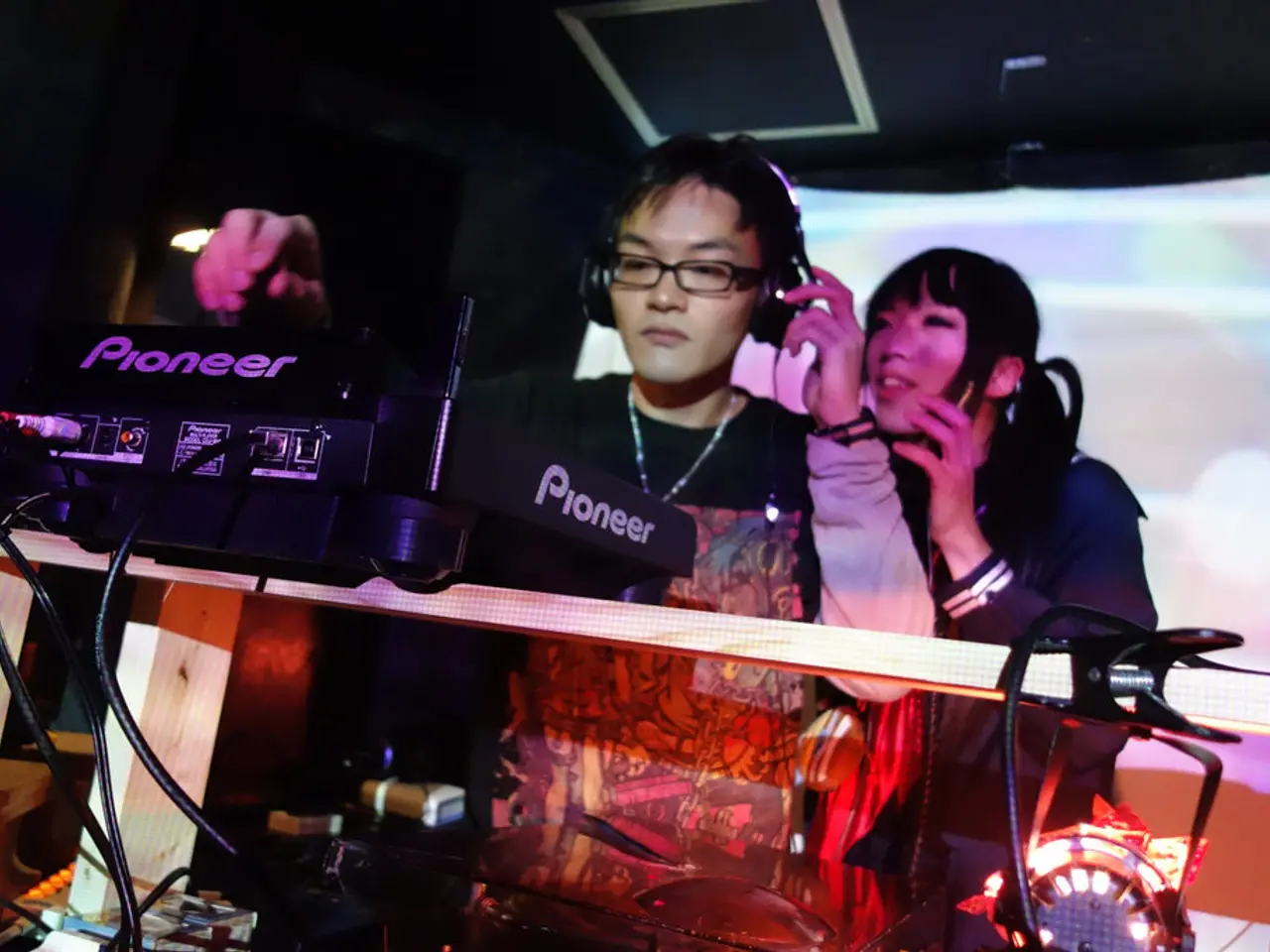Aspiring Disc Jockeys: Master the Art with Our Ultimate Guide
In the world of music, being a DJ is more than just selecting tunes. It's about mastering tools, creating seamless mixes, and engaging with crowds. Here's a guide for those interested in becoming a DJ.
A DJ, an acronym for disc jockey, is responsible for selecting music for various events, from parties to festivals and radio stations. To make your mark as a DJ, you need to develop skills in music selection, mixing and performance, and crowd engagement.
Starting at home, a decent set of speakers is crucial to get a clear representation of mixes. For practice, consider investing in a DJ controller and DJ software, a MIDI device that allows you to control mixer and turntable software on a computer.
There are three main types of DJs: Club DJs, Radio DJs, and Turntablists. Club DJs focus on mixing and beatmatching to keep the dance floor moving, using equipment like vinyl turntables, CDJs, digital controllers, or other playback devices. On the other hand, Radio DJs act as the host of a radio program, providing quips and commentary, selecting tracks, engaging with listeners, and conducting interviews with artists. Turntablists, the old-school DJs, manipulate sound and create new music through techniques like scratching and beat juggling, relying on a vinyl setup.
To become a successful DJ, developing a strong personal brand and networking within the industry are key factors. Creating a unique DJ name, developing a logo and visual identity, establishing an online presence, and promoting oneself are important for building a DJ brand.
When it comes to music selection, knowing which songs to play and when to play them is vital. This involves actively listening to music, following new artists, exploring record labels, and asking for track IDs.
Crowd engagement is another essential skill. Connecting with your audience, reading their reactions, and adapting your set accordingly are crucial. Watching how other DJs work the crowd and using the microphone to hype up the crowd can also be beneficial.
Mastering tools are important for making music louder and ensuring good mixes. Unlimited AI mastering subscriptions can help achieve this, with platforms like MasteringStudio delivering pristine, studio-quality music using an AI-driven mastering engine.
For mixing and performance, a DJ mixer is necessary for blending tracks together. Affordable and user-friendly options like the Pioneer DDJ-400 or Numark Mixtrack Platinum FX are available. Headphones are essential for cueing up tracks and listening to mixes, and the best headphones for DJs can be found in past articles.
Lastly, a one-gigabyte USB stick is important for storing music, and it should be formatted for CDJs. Remember, the three most famous DJs often cited as examples for their respective styles are Headhunterz for Hardstyle, DJ Antoine for House, and Nina Kraviz for Techno.
With dedication, practice, and the right tools, you can embark on an exciting journey as a DJ.
Read also:
- "Blood tests could potentially enhance the accuracy of malaria diagnoses in research circumstances"
- Must-see eco-friendly exhibitions to check out this summer in London for nature enthusiasts
- AI's environmental footprint unveiled by Mistral's latest sustainability tool, painting a grim picture
- The origins of Hispanic Heritage Month trace back to 1968, initially celebrated as a week-long event, later expanded for a more comprehensive observation.







